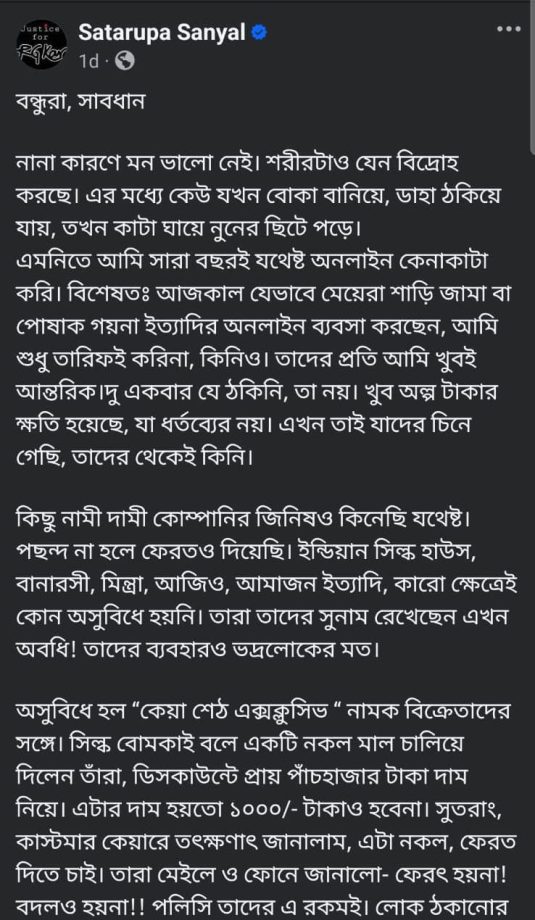A controversy has erupted in the Bengali film industry after actress-director Satarupa Sanyal accused Kaya Seth Exclusive of selling her a fake Bomkai saree. Sanyal, the mother of actress Chitrangada Chakraborty and Ritabhari Chakraborty, took to social media to express her dissatisfaction, claiming she paid ₹5,000 for the saree, only to discover it was worth less than ₹1,000.
In her Facebook post, Sanyal revealed that she purchased the saree during a discount sale but was refused a refund or exchange by the customer care team. She cautioned her followers about the brand’s allegedly deceitful practices, advising them to be wary of heavily discounted products.

Kaya Seth, the owner of Exclusive, responded with a video message, defending his brand and countering Sanyal’s allegations. She claimed that the saree’s description on the website clearly stated it was “not original,” implying that Sanyal had missed this crucial detail.
Seth’s response drew further criticism from Sanyal’s daughter, Chitrangada, who commented on the post, suggesting that Seth’s brand should be held accountable for selling counterfeit products. Seth retaliated, advising Chitrangada to educate her mother on tagging people and carefully reading product descriptions.
The public spat has sparked debate about consumer rights and the authenticity of online products. While Sanyal’s concerns highlight the importance of transparency in e-commerce, Seth’s response raises questions about consumer responsibility and the need for careful product research.
This controversy has also brought attention to the broader issue of counterfeit products in the fashion industry, with many calling for greater accountability and regulation.


